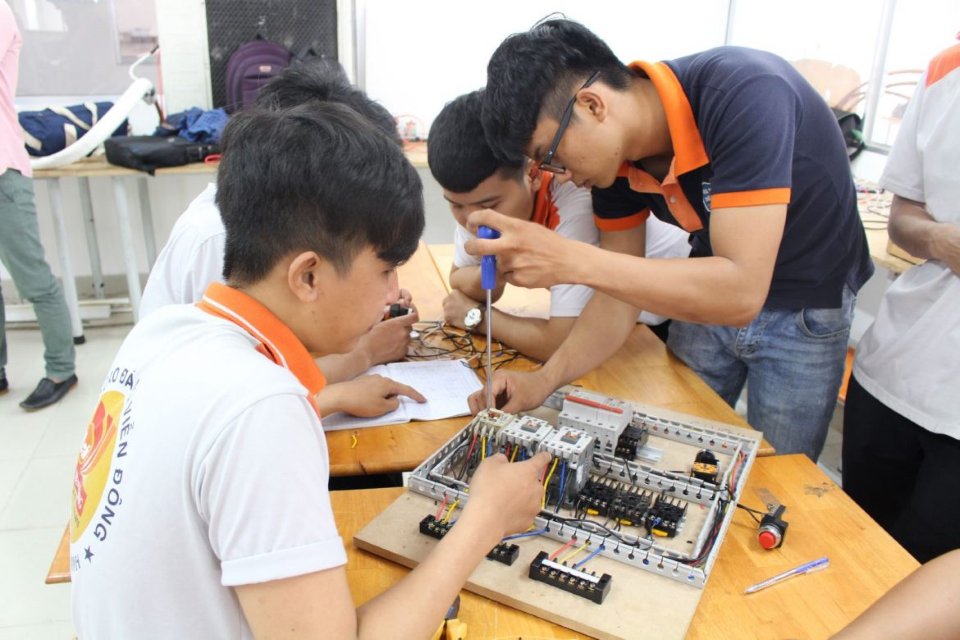Minimum Knowledge Requirements after Graduation in Electrical Measurement (Intermediate Level)
On December 28, 2018, the Ministry of Labor, Invalids and Social Affairs (MOLISA) issued Circular 48/2018/TT-BLDTBXH regulating the minimum knowledge volume and competency requirements that learners must achieve after graduating from intermediate and college levels in fields of electrical engineering, electronics, and telecommunications.

Minimum Knowledge After Graduation in Electrical Measurement (Intermediate Level) - Illustrative Image
According to the Regulations on the minimum knowledge volume, competency requirements that learners need to achieve after graduating at the intermediate and college levels in the electrical measurement field, issued together with Circular 48/2018/TT-BLDTBXH, the minimum knowledge volume learners must achieve after graduating in the electrical measurement field (intermediate level) is as follows:
- Be able to present methods for calculating errors; laboratory standards. Technical standards in operation of equipment and accessories in the electrical measurement system;
- Be able to present administrative procedures and regulations on contracts, negotiations, and work handover; operation sheets, work sheets;
- Be able to describe the technical process for electrical safety;
- Be able to present the processes for inspection, maintenance, repair, and replacement of measurement mechanisms: Electromagnetic, electrical, electronic, electrostatic, and induction mechanisms;
- Be able to present the verification process for measurement transformers (TU, TI), the calibration process for measurement standards; the verification process for induction and electronic electric meters; the installation process for cabinets and electrical panels;
- Be able to describe the management and operation process of distribution MBAs, 110 kV and 220 kV substations;
- Be able to describe the structure, utility, and technical specifications of instruments measuring voltage, current, power, energy, voltage transformers, current transformers, switchgear, grounding systems, signal systems, control systems, protection systems, cabinets, and electrical panels;
- Be able to present the working principles and operation policies of: ammeters, voltmeters, frequency meters, power factor meters, wattmeters, electric meters; lightning protection devices and grounding systems;
- Be able to present technical standards, safe grounding resistance standards, lightning protection grounding, operational grounding; labor safety and industrial hygiene work;
- Be able to identify electric connection diagrams, grounding systems, signal systems, control systems, protection systems of 110 kV, 220 kV substations;
- Be able to present concepts and utilities of electrical measurement systems, control systems, signal systems, relay protection systems, automation systems, and grounding systems;
- Be able to present basic knowledge about political science, culture, society, law, national defense and security, and physical education as regulated.
Detailed regulations in Circular 48/2018/TT-BLDTBXH, effective from February 10, 2019.
Le Vy
- Responsibilities of officials of the Ministry of Finance of Vietnam when they are issued Official Passports from November 19, 2024
- 06 solutions to enhance the effectiveness of social policy credit in the new phase in Vietnam
- Financial support level for the purchase and repair of transportation vehicles for the Economic - National Defense Corps in Vietnam from December 30, 2024
- Financial support levels for purchasing and repairing of medical equipment for the Economic - National Defense Corps in Vietnam from December 30, 2024
- Latest regulations on management and use of passports for officials and public employees of the Ministry of Finance of Vietnam
- New regulations on the procedures for veterinary sanitation inspection in Vietnam from January 6, 2025
-

- Responsibilities of officials of the Ministry ...
- 16:00, 23/11/2024
-

- 06 solutions to enhance the effectiveness of social ...
- 15:32, 23/11/2024
-

- Guidelines for registration and organization of ...
- 11:53, 23/11/2024
-

- Contents of audit service quality control in Vietnam
- 11:00, 23/11/2024
-

- Acts in violation of Law on Independent Audit ...
- 10:30, 23/11/2024
 Article table of contents
Article table of contents
